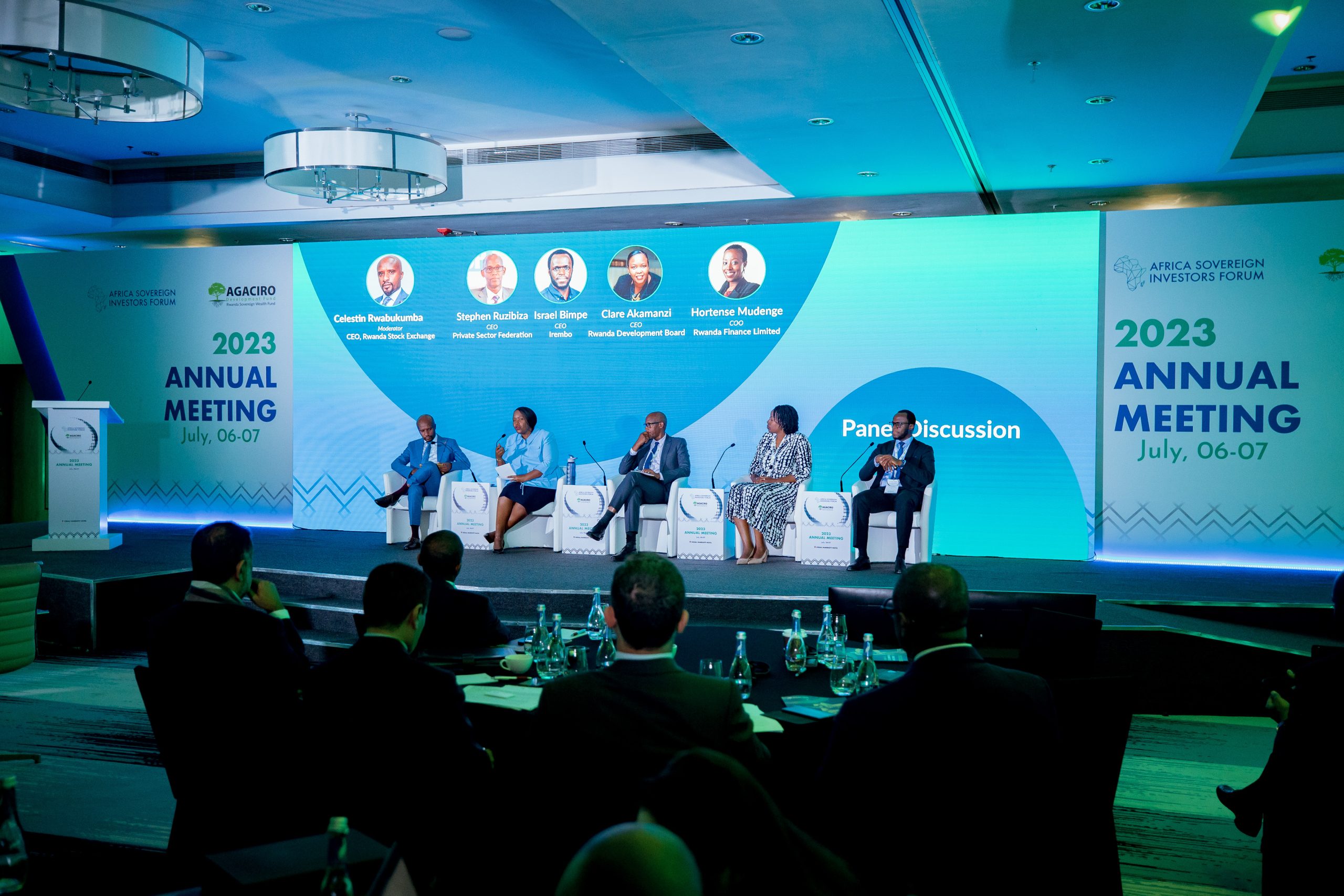Reflecting on how the investing landscape has grown in Rwanda, three things come to mind, says RDB CEO, Clare Akamanzi.
The first is the amount of invinvestments being registered in the country.
“If we look at where we were in 2010, we were attracting investments worth US$ 300 million a year on average. If we look at the last three years, most of it from during Covid, we have attracted US$ 2 billion [per year] on average,” she told participants at the just concluded Africa Sovereign Investors Forum in Kigali.
The second, she said, is how Rwanda positions itself as a compelling destination for investment.
“If you look at the key fundamentals that investors look for when considering a market, safety and how easy it is to do business come first.”
Today, Rwanda is ranked the sixth safest country in the world. “We emphasize safety, not just yours, but safety of your ideas through intellectual property rights and safety of your investments and property among others.”
Rwanda was also ranked 38th in the world as the easiest country to do business and second in Africa, right after Mauritius.
Because of the attractive investment environment, high growth rate, safety and commitment to economic growth, Rwanda has been diversifying its economy.
Akamanzi noted that Rwanda has new sectors that are driving the economic growth, different from the traditional ones.
Looking at the structure of the economy, manufacturing and services are playing a much bigger role and growing the fastest.
Previously agriculture was a traditional source of economic activities. Today, MICE (Meetings, Incentives, Conferences & Events) has become one of our biggest sources of tourism.
People are coming to Rwanda for events such as the sports events [organized] with the NBA, FIFA Congress or meetings like this.
Akamanzi noted that Rwanda is also going to launch the manufacturing of vaccines in the country in December this year with the European Union in partnership with @BioNTech_Group.
Assembling cars by @VWRwanda is another example. “All these activities are new ideas that are shaping the growth of the economy and this is because we put up an environment for them to happen.”
Many of the challenges that Rwanda has seen have been surmountable. ‘We have worked on a very difficult history, building back a country and uniting people from a history of division.”
Building infrastructure where there is no infrastructure. All these are challenges that Rwanda has dealt with.
But there are difficult challenges like the size of Rwanda’s economy. How Rwanda has dealt with that is by really embracing integration. This is because integration allows Rwanda to thrive within a bigger market.
The second way Rwanda is dealing with that is that it thinks continental.
If you look at all investments and economic plans, they are very much continental based.
Akamanzi said Rwanda wants to become a hub for aviation, “which is why we are investing with Qatar to expand @FlyRwandAir across the continent.”
Rwanda wants to become a proof of concept country for people to prove their concepts and scale across Africa.
“We want to become a destination for meetings. We want to become a hub for many things because we see for a country of our size the best way is to think about opportunities that are regional and global.”
That is how Rwanda is addressing the challenge of being a relatively small market, but attractive and successful.
Meanwhile, Akamanzi explained the role of Sovereign funds, pointing out Rwanda’s Agaciro Fund.
She said that RDB’s job is to look for investors to invest into the economy, and sometimes investors are looking for domestic partners.
“If Agaciro is investing its portfolio in the country, it is inviting to foreign investors. Having success stories such as Agaciro directly contributes to the high economic growth rate that Rwanda is experiencing. Just this quarter, we grew by 9.2% and 8.2% last year.”
“Ideologically, when @AgaciroFund was first created, it was in response to some of the external issues that were affecting our development plans, especially because at the time we were donor-dependent.
We experienced, as a country, donors threatening to pull funds from our economy, so the ideological significance came from asking ‘how do we own our development as a country?’
The second one was economic significance – how do we have alternative sources of funding that can really finance our development? When I see how far we have come, we are becoming more and more capable.
For instance, “80% of our budget is currently financed by local resources.”